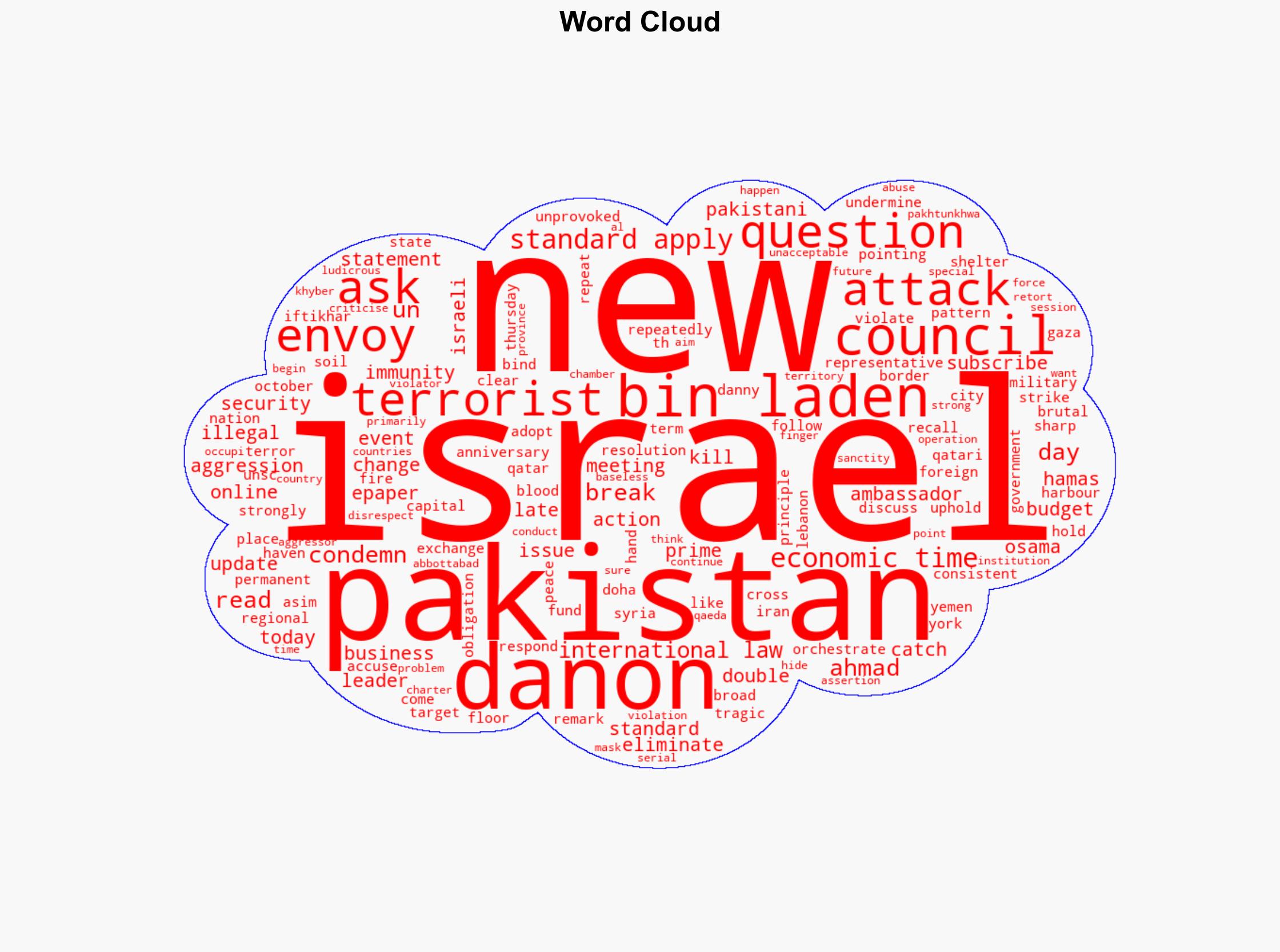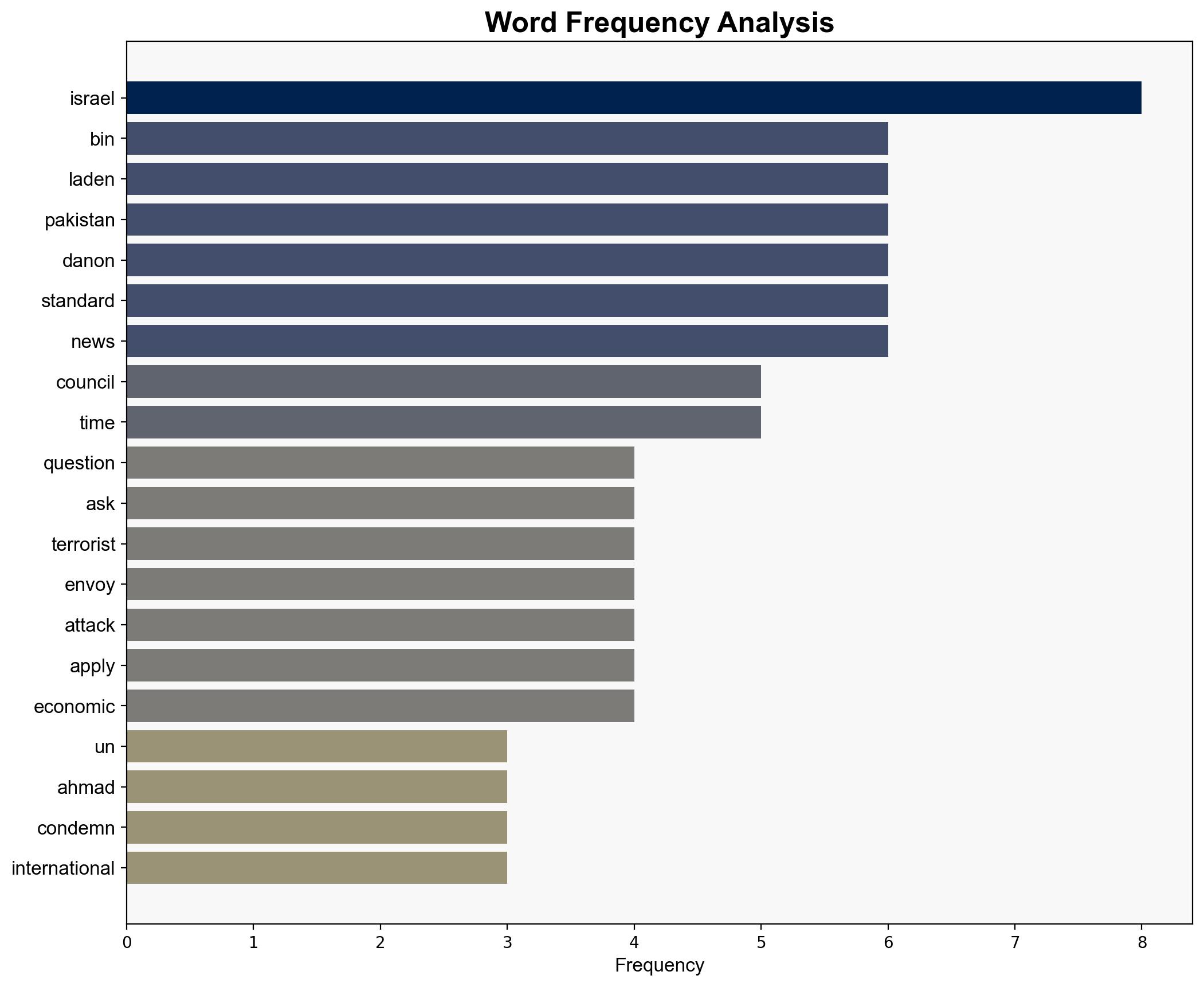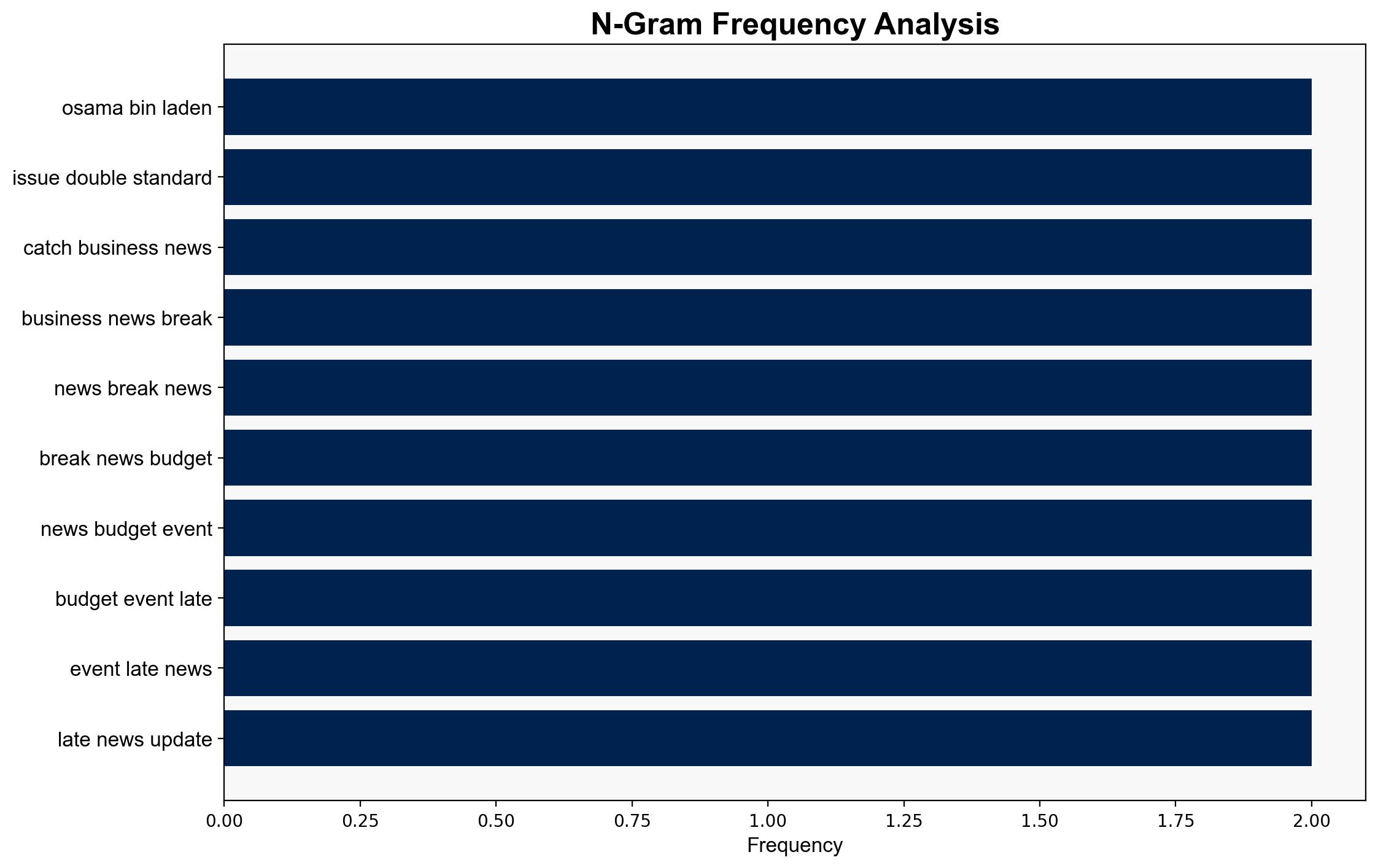Israel slams Pakistan at UNSC says ‘cannot change fact that Osama bin Laden was killed on your territory’ – The Times of India
Published on: 2025-09-13
Intelligence Report: Israel slams Pakistan at UNSC says ‘cannot change fact that Osama bin Laden was killed on your territory’ – The Times of India
1. BLUF (Bottom Line Up Front)
The most supported hypothesis is that Israel’s statements at the UNSC are strategically aimed at highlighting perceived double standards in international responses to terrorism, particularly in relation to Pakistan’s past harboring of Osama bin Laden. Confidence level: Moderate. The recommended action is for stakeholders to engage in diplomatic dialogue to address these accusations and mitigate potential escalation in regional tensions.
2. Competing Hypotheses
1. **Hypothesis 1**: Israel’s statements are primarily a strategic maneuver to draw attention to perceived inconsistencies in international responses to terrorism, using Pakistan’s past actions as a case study.
2. **Hypothesis 2**: Israel’s statements are a direct response to Pakistan’s accusations of Israeli aggression, aiming to delegitimize Pakistan’s criticisms by highlighting its own controversial history with terrorism.
Using Analysis of Competing Hypotheses (ACH), Hypothesis 1 is better supported as it aligns with Israel’s broader diplomatic strategy of emphasizing counter-terrorism and security concerns. Hypothesis 2, while plausible, lacks comprehensive support given the broader context of Israel’s international positioning.
3. Key Assumptions and Red Flags
– **Assumptions**: It is assumed that Israel’s statements are primarily motivated by strategic interests rather than immediate reactive measures. It is also assumed that Pakistan’s past with Osama bin Laden remains a sensitive and impactful issue in international diplomacy.
– **Red Flags**: The potential for cognitive bias exists in interpreting Israel’s motives solely through a security lens, neglecting potential domestic political influences. The absence of direct evidence linking current events to past actions of Pakistan could be misleading.
4. Implications and Strategic Risks
– **Geopolitical Risks**: The exchange could exacerbate tensions between Israel and Pakistan, potentially influencing broader regional alliances and diplomatic relations.
– **Economic Risks**: Escalating rhetoric may impact regional stability, affecting economic relations and investments in the Middle East and South Asia.
– **Psychological Risks**: The narrative could influence public perception, potentially increasing nationalistic sentiments and hardening public opinion against perceived adversaries.
5. Recommendations and Outlook
- Engage in multilateral diplomatic efforts to address and de-escalate tensions, focusing on shared security concerns and counter-terrorism initiatives.
- Monitor regional media and public sentiment to gauge potential shifts in public opinion and policy direction.
- Scenario Projections:
- Best Case: Diplomatic dialogue leads to improved cooperation on counter-terrorism.
- Worst Case: Rhetoric escalates into broader regional conflict, impacting international relations and economic stability.
- Most Likely: Continued diplomatic exchanges with periodic rhetorical escalations, but no immediate conflict.
6. Key Individuals and Entities
– Danny Danon
– Asim Iftikhar Ahmad
– Osama bin Laden
7. Thematic Tags
national security threats, cybersecurity, counter-terrorism, regional focus





